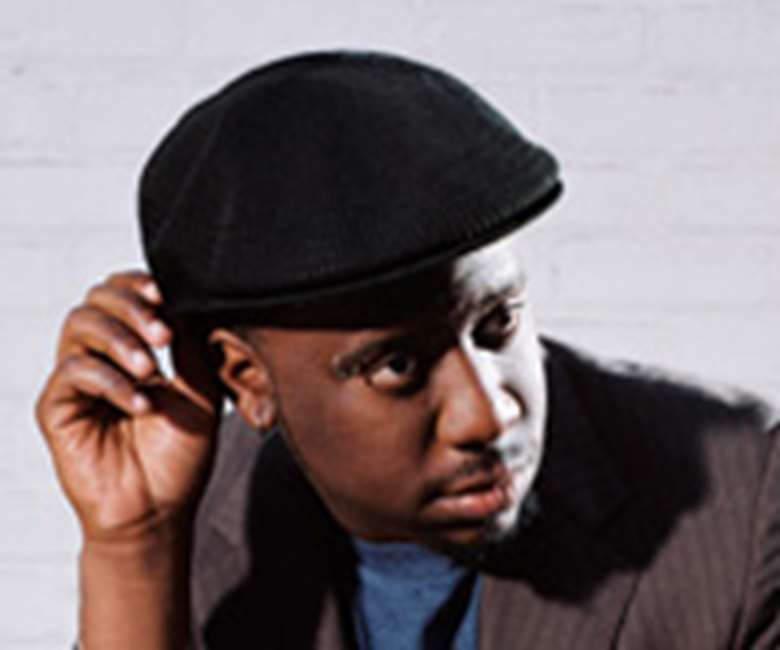Robert Glasper - Element of Chance
Tuesday, May 29, 2007
Robert Glasper is trying to do what only a few brave souls have tried, to integrate hip hop with jazz. But unlike others who have failed to make the two different musical forms work together, his steady progress in this direction has achieved critical success in the States and beyond. With his new record, In My Element, he takes the most basic of jazz units, the trio, to use as his tool to take the music forward and make it live. Interview: Andy Robson

It wasn’t the best time to call... “Andrew Hill died. I heard just an hour ago…” Another hero had moved on. You wouldn’t blame Robert Glasper if he didn’t want to talk. Hill was a mentor to the young piano man, and, in the context of what Glasper was due to talk about – his vibrant new Blue Note release, In My Element – Hill was a precursor, part of the great Blue Note tradition of pianists, stretching back to Albert Ammons and flowing on through Bud, Monk, Silver, Herbie, McCoy and on to contemporary voices like Jason Moran.
But Glasper doesn’t see this awesome role call as a burden: it’s more a liberation, a succession of giants who have lifted Glasper on their shoulders. Although Hill’s passing is a moment to mourn it has also sharpened Glasper’s focus. He feels all the more “…that I have a responsibility as a young black piano player. As a young black jazz musician. That’s a lost thing too. You go to a jazz club these days and a lot of cats aren’t young black dudes.”
And that’s not how Glasper wants it to be. To say Glasper is on a mission may be a shade melodramatic, but for him the music, the jazz, has to be about more than his career, his wallet. Who he plays for matters as much as what and why he plays. “I soon realised that a lot of my audience were an older Caucasian crowd. A lot of the people we’ve played for are about to pass away – they won’t be around to buy the next album! But my thing is I want my music to live. I want young people to enjoy my music, not just the jazz heads. If you just play for jazz musicians or a jazz audience you’re not really expanding your music or extending your career.”
But Glasper is equally adamant that jazz “is definitely the right word for what I do. But jazz means so many different things, it’s not one thing. Jazz grows. Its not just Miles Davis, Charlie Parker, ‘A-Train’.”
And Glasper has little time for those who judge jazz as the ‘one thing.’ “I’m just trying to take it somewhere else from where Wynton’s going. He kinda went backwards. He influenced a power of people in the 80s but now he’s totally back to the 40s. He does what he does. But I’m for the people of my generation. He’s not grasping a younger audience. He wants young people to join the jazz bandwagon but every time he talks, he talks about Louis Armstrong. And that’s not interesting people right now. Young people don’t want to know about Louis Armstrong.”
What grips a young black audience is hip hop. And Glasper knows that precisely because he is that audience. “I wasn’t born in the 60s [he was born in 1978] so I’m playing the music of my generation. Every musician does that. Jazz is such an old art, but the more you mix it with what’s new and current people go ‘Uh, that’s not the way you’re meant to do it.”
Well, like it or not, the way Glasper does it is to bring in acres of hip hop flavours, far more than on previous outings like Mood or Canvas, his Blue Note debut.
This is an extract from Jazzwise Issue #109 to read the full feature and receive a Free CD subscribe here…